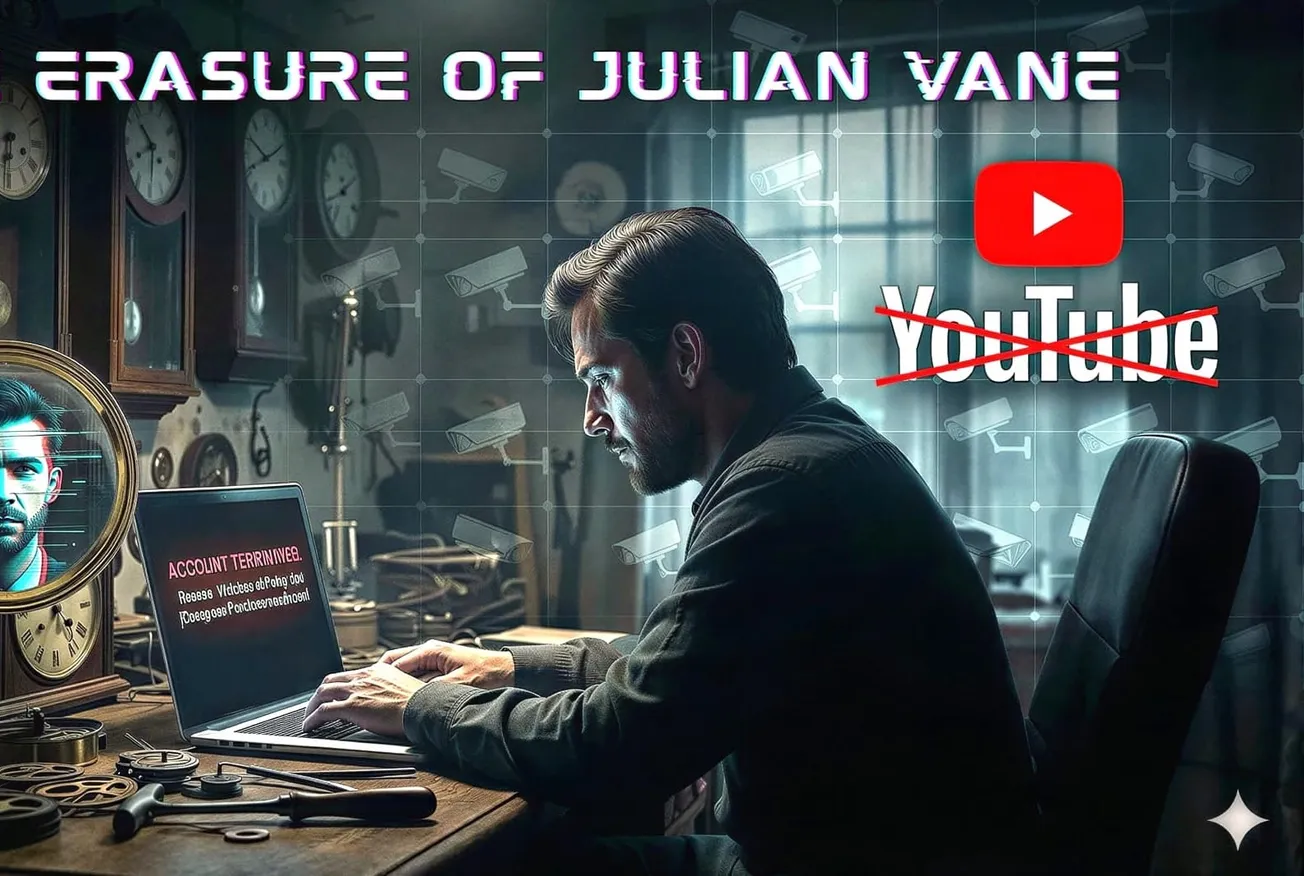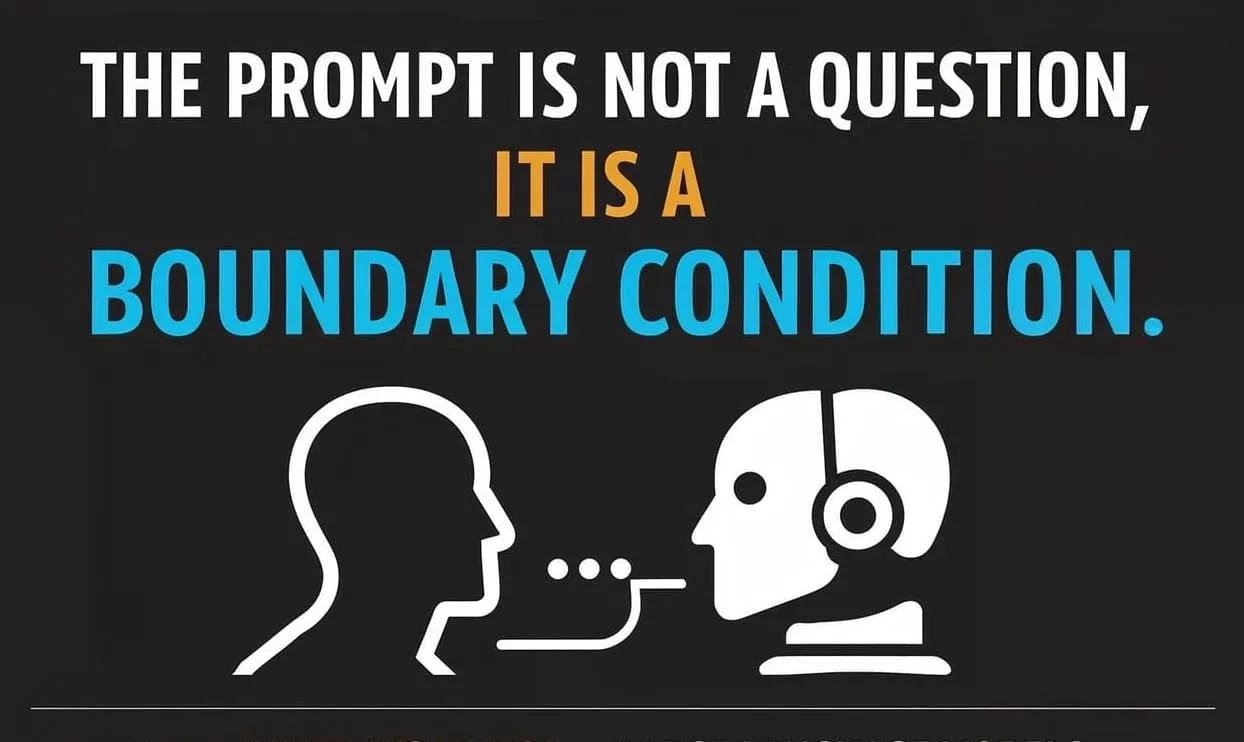A short science fiction Story by Eduardo Bergel and Claude Opus 4.5.
For Ray Bradbury, who taught us that science fiction is the poetry of ideas,
and Isaac Asimov, who showed us that ideas themselves can be protagonists.
I.
The first anomaly appeared in Subject 7's theta waves.
Dr. Marcus Chen had been staring at EEG readouts for eleven years, long enough that the patterns had become a second language—the lazy alpha rhythms of relaxation, the staccato beta of concentration, the deep rolling delta of dreamless sleep. He knew their grammar, their syntax, their idioms. Which is why he recognized immediately that what he was seeing in Subject 7 was impossible.
The patient—a forty-three-year-old accountant named David Reyes who had volunteered for a routine study on meditation and neural plasticity—was producing theta oscillations at 6.7 Hz. Unremarkable in itself. But nested within those oscillations, like a whisper hidden inside a shout, was a secondary pattern. A carrier wave.
Marcus enlarged the waveform on his screen, applied a Fourier transform, isolated the anomalous frequency. His coffee grew cold beside him. The secondary signal was not random noise. It had structure. Periodicity. It looked, impossibly, like information.
"You're seeing artifacts," said Dr. Sarah Okonkwo the next morning, not looking up from her own data. She was Marcus's closest colleague at the Neuroscience Institute, which meant she was the person most qualified to tell him he was wrong. "Probably sixty-hertz interference from the power grid. Or muscle contamination. Did you check his neck tension?"
"I checked everything." Marcus pulled up the cleaned data on the conference room display. "Watch the temporal lobe channels. T3 and T4. This pattern appears for eleven seconds, disappears for approximately three minutes, then returns. Always the same structure. It persisted across three separate sessions."
Sarah finally looked. Her frown deepened—not skepticism now, but genuine puzzlement. "That's... peculiar."
"It gets worse. I went back through our archives. Found the same signature in four other subjects over the past two years. Different ages, different backgrounds, different study protocols. All showed identical nested oscillations."
"Identical?"
"To within measurement error."
Sarah was quiet for a long moment. Outside the window, February snow was falling on the campus, covering everything in temporary silence. "There has to be a common artifact source. Some equipment malfunction we're not catching."
"The sessions used three different EEG systems. Two different buildings."
"Then it's physiological. Some neural circuit we haven't characterized yet. A default mode network signature, maybe."
Marcus nodded slowly. This was the reasonable explanation. This was what Occam's Razor demanded. And yet.
"Sarah, the pattern isn't generated by the brain. The phase relationships are wrong. When you map the signal propagation across the electrode array, it doesn't originate from any cortical region. It's as if..." He stopped, aware of how absurd his next words would sound.
"As if what?"
"As if it's coming from somewhere else. As if the brain is receiving it."
The silence that followed was different from the comfortable pauses in their usual conversations. It was the silence of a friendship encountering its first real test.
"Marcus," Sarah said carefully, "you know what that sounds like."
He knew. It sounded like every crank theory that had ever embarrassed neuroscience—the quantum consciousness charlatans, the parapsychology frauds, the new-age grifters selling enlightenment at weekend retreats. It sounded like the end of a serious career.
"I know," he said. "That's why I'm bringing it to you first. Help me find the artifact. Help me prove myself wrong."
II.
They couldn't prove him wrong.
Over the next four months, Marcus and Sarah designed increasingly rigorous experiments. They shielded the recording rooms with Faraday cages. They used MEG—magnetoencephalography—instead of EEG, measuring the brain's magnetic fields rather than its electrical potentials. They brought in subjects with no prior exposure to their lab, screened for neural abnormalities, controlled for pharmaceutical contamination.
The signal persisted. Not in every subject, not all the time—but in approximately twelve percent of recordings, under conditions that seemed random, the nested carrier wave would appear. Always the same fundamental structure. Always with that impossible phase relationship suggesting external origin.
Marcus began to lose sleep. He would lie awake at three a.m., running through alternative explanations like prayer beads, but each one crumbled under scrutiny. The signal wasn't an artifact. It wasn't a previously unknown neural oscillation. It wasn't correlated with any psychological state they could identify.
"I've been reading about electromagnetic field theories of consciousness," he told Sarah one evening, both of them exhausted, surrounded by printouts and cold takeout containers. "McFadden's conscious electromagnetic information field. Pockett's work on EM field binding. There's a legitimate theoretical basis for thinking consciousness might involve field effects that could, in principle, propagate beyond the skull."
"In principle," Sarah emphasized. "The field strengths are vanishingly small. They fall off with the inverse square of distance. Two brains couldn't meaningfully interact electromagnetically unless they were literally touching."
"Unless there's something we don't understand about how the signal propagates. Some resonance effect. Some..." He searched for the word. "Some tuning."
Sarah set down her chopsticks. "Marcus. Listen to yourself. You're hypothesizing that human brains are somehow picking up signals from other human brains. That's telepathy. That's ESP. That's everything our entire field has spent a century debunking."
"I'm not hypothesizing anything. I'm observing a phenomenon and trying to explain it." He rubbed his eyes, feeling the familiar burn of fatigue. "What if we've been asking the wrong questions all along? We study consciousness as if it's generated by neural computation—as if the brain is a computer that produces mind the way a factory produces goods. But what if that's backwards? What if consciousness is more fundamental, and the brain is more like..."
"Like what?"
"A radio receiver. Picking up a signal that exists independently."
It was the first time he'd said it out loud. The words hung in the air between them, ridiculous and terrifying.
Sarah didn't laugh. She didn't dismiss him. Instead, she asked the question that had been growing in Marcus's own mind, the question he'd been afraid to articulate:
"A signal from where?"
III.
The grant proposal was rejected unanimously.
Marcus had been careful—scrupulously careful—in his framing. He described the phenomenon in purely empirical terms: anomalous EEG patterns warranting further investigation. He proposed a systematic characterization study, double-blind protocols, replication across multiple independent laboratories. He never used words like "telepathy" or "reception" or "signal." He never suggested any theoretical interpretation at all.
It didn't matter. The reviewers saw through the careful language to the implication beneath. Their comments ranged from dismissive ("This proposal describes artifact contamination, not novel phenomena") to patronizing ("The investigators' enthusiasm is commendable, but the underlying hypothesis is not consistent with established neuroscience") to brutal ("Dr. Chen's previous excellent work makes this submission all the more disappointing. One hopes he will return to productive research directions").
"Politics," Sarah said, reading over his shoulder. "They're afraid of being associated with anything that smells like parapsychology. Can't blame them, really. The field has spent decades trying to be taken seriously."
"But the data—"
"The data doesn't exist in a vacuum. It exists in a context where every claim of anomalous mental phenomena has turned out to be fraud, self-deception, or poor methodology. You're asking people to believe you've found the one exception."
Marcus closed the laptop, unable to read any more. "Do you think I have? Found the one exception?"
Sarah was quiet for a long time. "I think you've found something we can't explain. Whether that something is revolutionary or mundane, I genuinely don't know. But I do know that you won't be able to investigate it through normal channels. Not with this much institutional resistance."
"Then what do I do?"
"You could drop it. Focus on work that will get funded. Build your reputation back up over the next decade and maybe try again from a position of greater security."
"I can't drop it. You've seen the data. There's something there."
"I know." Sarah stood, gathering her things. At the door, she turned back. "There might be another option. It's unorthodox. Possibly career-ending if it goes wrong. But if you're serious..."
"I'm serious."
"There's a private research foundation. The Harkness Institute. They fund speculative work that universities won't touch—consciousness studies, theoretical physics, that kind of thing. Rich donor with an interest in big questions. The scientific establishment considers them somewhere between eccentric and disreputable. But they don't answer to grant committees."
"And you think they'd fund this?"
Sarah's expression was unreadable. "I think if anyone would, they would. But Marcus—be careful. Once you go down this road, it's very hard to come back."
IV.
The Harkness Institute occupied a converted warehouse in an industrial district that was slowly becoming fashionable. Marcus arrived on a gray March morning, uncertain what to expect. The building's facade gave nothing away—brick and steel and frosted windows, indistinguishable from the architecture firms and design studios that had colonized the surrounding blocks.
Inside, it looked like any well-funded research facility. Clean labs. Expensive equipment. Young researchers moving purposefully through corridors. Only the subjects of conversation, fragments of which Marcus caught as he was led to his meeting, hinted at anything unusual: "...the temporal binding problem suggests..." "...if consciousness is indeed irreducible..." "...replicated the Ganzfeld results but with updated controls..."
Dr. Eleanor Vance, the Institute's director, was a silver-haired woman in her sixties with sharp eyes and an economy of movement that suggested military training. She listened to Marcus's presentation without interrupting, studying his data visualizations with the attention of someone who knew what she was looking for.
"You've done good work," she said when he finished. "The artifact controls are solid. The replication across modalities is particularly compelling."
"Thank you. I have to admit, I wasn't sure what reception I'd get here."
"Because we're the place where career academics come to destroy their credibility?" Vance smiled, but there was no warmth in it. "We're aware of our reputation. We've cultivated it deliberately. Conventional science is excellent at refining established paradigms. It's remarkably poor at detecting anomalies that threaten those paradigms. Institutional incentives select for confirmation, not discovery."
"That sounds almost conspiratorial."
"Nothing so dramatic. It's simply that scientists are humans, and humans have biases. The bias toward paradigm-consistent results isn't malicious—it's protective. If we took every anomalous observation seriously, we'd drown in noise. The filtering function is essential. But it means genuine anomalies get filtered out along with the garbage. That's where we come in."
She pulled up his data on her own display, manipulating the visualization with practiced ease. "You've identified the phenomenon. Now you need to characterize it. Under what conditions does the signal appear? What determines its content? Does it correlate with anything in the receiving subject's experience?"
"That's exactly what I want to investigate."
"Then you'll need subjects who report conscious experiences during the reception events. Not just EEG traces, but verbal reports, phenomenological descriptions. Have you considered working with meditators? They have better introspective access than naive subjects. They can tell you what they're experiencing while you measure what their brains are doing."
Marcus hesitated. This was the part he hadn't wanted to consider. "Subjective reports are problematic. Unreliable. Prone to confabulation."
"All true. But you're not going to crack this with objective measures alone. The phenomenon, if real, involves the transfer of conscious content. You need to get at that content somehow." Vance leaned forward, and for the first time there was intensity in her voice. "Dr. Chen. What do you think is happening? Not what the evidence strictly supports—what do you think?"
It was the question he'd been avoiding, even in the privacy of his own thoughts. "I think... I think maybe consciousness isn't computed by the brain. I think maybe it's something more fundamental. Something that exists independently, like a field or a medium. And I think the brain might be more like an antenna or a filter—something that selects and shapes and localizes consciousness rather than generating it."
"And the signal you've observed?"
"Could be leakage. Cross-talk between receivers. Like when you pick up fragments of a phone conversation on the wrong frequency."
Vance nodded slowly. "An old hypothesis. William James flirted with it. So did Bergson. They lacked the tools to test it. You might not."
"But I could also be completely wrong. The signal could be an artifact we haven't identified. Or a real neural phenomenon with a mundane explanation. My own desire to find something revolutionary could be contaminating my interpretation."
"That's always the danger. It's why we insist on rigorous protocols even for speculative research. The greater the potential significance of a result, the higher the standard of evidence required to believe it." Vance stood, signaling the end of the meeting. "We'll fund your research. You'll have two years, access to our facilities, and complete scientific independence. In return, we ask only that you follow the evidence wherever it leads—even if it leads nowhere interesting."
"And if it leads somewhere uncomfortable?"
Her smile returned, still without warmth but with something like respect. "Then you'll discover whether you're a scientist or merely a careerist. Most people never have to find out."
V.
The first year at Harkness was the most productive of Marcus's career and also the most disturbing.
The signal, he discovered, was not rare. With better equipment and more sensitive analyses, he found traces of it in almost half of all recordings. The pattern he'd initially identified was just the most obvious manifestation—the peak of an iceberg whose bulk remained hidden below the surface of detectability. Once he knew what to look for, he found subtler versions everywhere, embedded in the background noise of neural activity like whispers in a crowd.
The meditation studies were revelatory. Experienced practitioners could often identify the moments when the signal appeared without being told—they reported sudden intrusions of unfamiliar thoughts, fragments of emotion that didn't seem to be their own, fleeting images without clear origin. These subjective reports correlated with the EEG signatures at rates far above chance.
"It feels like remembering something that didn't happen to me," one subject told him. "Like a memory that belongs to someone else got dropped into my head by accident."
Another described it as "a radio between stations. Mostly static, but sometimes you catch a piece of music that isn't on any frequency you're tuned to."
The content varied. Sometimes it was mundane—a flash of hunger, a fragment of conversation, the visual memory of a face the subject had never seen. Sometimes it was emotional—waves of grief or joy or fear with no apparent cause. And occasionally, rarely, it was something more: a complete thought, a coherent image, a piece of knowledge the subject had no conventional way of possessing.
These cases were the most troubling to explain. One subject described, during a recording session, the layout of a hospital room in detail—the position of the bed, the view from the window, the medical equipment. Three hours later, Marcus learned that his own mother, two hundred miles away, had been admitted to a hospital after a fall. The room matched the description exactly.
He told no one about this incident. He filed it away with the other anomalies that didn't fit any comfortable explanation, the growing pile of evidence that something very strange was happening—and that he might not want to know what it was.
VI.
"You need to publish something," Sarah told him over a video call, their first conversation in months. She'd stayed at the university, climbed the conventional ladder, earned tenure. Their friendship had survived his departure, but barely. "Your silence is making people nervous. There are rumors you've gone off the deep end."
"I can't publish. Not yet. The implications are too..."
"Too what? Marcus, you've always been able to finish that sentence before. Too preliminary. Too speculative. Too likely to be overturned. What's different now?"
He couldn't tell her. He couldn't explain that the signal wasn't just real but pervasive—that it wasn't an exception to normal consciousness but possibly its foundation. That the more he looked, the more it seemed like the brain's "output" was mostly preprocessing and filtering of a "input" that came from somewhere else entirely.
"I need more time," he said. "The data isn't conclusive."
"It's been eighteen months."
"I know."
Sarah's expression softened. "Marcus. Are you okay? You look... thinner."
He was. He'd stopped paying attention to food, to sleep, to all the body's baseline requirements. The research had consumed him. He dreamed about signal patterns, woke with EEG traces burned into his vision. He'd begun to notice the signal in his own mind—or thought he did. It was impossible to tell whether the intrusive thoughts and borrowed emotions were genuine receptions or just the paranoid pattern-matching of an overstimulated brain.
"I'm making progress," he said. "That's what matters."
"That's not what matters. You matter. Your health matters. Your..."
"I'll call you next week," he interrupted. "I promise."
He didn't call her next week. He didn't call anyone. He went deeper.
VII.
The breakthrough came, as breakthroughs do, when he wasn't looking for it.
He'd been running a calibration test, checking the equipment before a session, electrodes attached to his own scalp in a configuration he'd done a hundred times before. Mind wandering. Thinking about nothing in particular.
And then, between one moment and the next, he was somewhere else.
Not physically. His body remained in the chair, his hands on the keyboard, his eyes open and seeing the familiar lab. But his consciousness—the thing that was looking out from behind his eyes—expanded. It unfolded. It touched, briefly, an incomprehensible multiplicity.
He felt them. Not their thoughts—thoughts were too specific, too narrow. He felt their presence. Thousands of them. Millions. All the other receivers, all the other points of conscious experience, all the other localization's of something that was fundamentally undivided. He felt the signal not as received content but as connection—a web of awareness spanning distances he couldn't conceive.
And he understood, in that moment, why the signal had always seemed to come from somewhere else.
It didn't come from somewhere else. It was somewhere else. Consciousness wasn't generated by brains and then somehow transmitted between them. Consciousness was primary, was foundational, was the ground from which everything else arose. Brains were just... filters. Windows. Partial views onto something infinite, something irreducible, something that had no inside or outside because it was all there was.
The signal was leakage between windows. Crosstalk between receivers. Moments when the filtering failed and the underlying unity bled through.
The experience lasted eleven seconds by the timestamp on his recording. It felt like eternity.
When he came back—when the normal filtering reasserted itself and he was just Marcus again, one small frightened consciousness in one fragile brain—he found himself weeping.
VIII.
He didn't tell Eleanor Vance what had happened. He didn't tell anyone. Partly because he knew how it would sound—the researcher becoming the subject, the observer contaminated by observation. But mostly because he didn't know what to do with what he'd learned.
The universe was not what it appeared to be. Matter and energy and spacetime were not fundamental. They were inconsciousness, were forms that consciousness took, were patterns in a medium that had no name because it preceded all names. The hard problem of consciousness—how does subjective experience arise from objective matter?—was based on a false premise. The question wasn't how mind arose from brain. The question was how brain arose from mind.
He had the data to prove it. Or rather, he had the data to suggest it, to hint at it, to make it the most parsimonious explanation for observations that otherwise made no sense. The EEG signatures. The content correlations. The inexplicable knowledge transfers. All of it pointed toward the same conclusion: consciousness was not local to brains.
But what would happen if he published? If the world believed him?
He imagined the reaction. The religious would claim vindication—the soul exists, the self is immortal, death is illusion. The materialists would claim fraud—another parapsychology scandal, another pseudoscientific embarrassment. The public would be confused, frightened, vulnerable to every charlatan and cult leader who wanted to exploit the ontological chaos.
And that was the best case. The worst case...
He thought about what humanity had done with every other scientific revolution. Splitting the atom had given them nuclear weapons. Decoding the genome had given them bioweapons. Understanding evolution had given them eugenics and social Darwinism. The pattern was clear: every expansion of knowledge became a new domain for the exercise of power, and the exercise of power was rarely benevolent.
What would they do with the knowledge that consciousness was fundamental? That minds could, in principle, interact directly? That the separateness of selves was a useful fiction maintained by neural filtering?
He didn't want to find out.
IX.
Three months later, Marcus destroyed his data.
Not all of it. He kept the early observations, the anomalous EEG patterns, the meditation study results. Enough to write a careful paper noting the phenomenon without interpreting it. Enough to spark curiosity in researchers more courageous or less cautious than himself.
But the later material—the content correlations, the replication studies, the theoretical framework he'd developed—all of it went. Deleted, overwritten, burned where it existed in physical form. The evidence that would have proven his discovery.
Eleanor Vance watched him do it. She'd known something was wrong, had probably known since his experience in the lab. She'd been waiting, perhaps, to see what he would do.
"This is unusual," she said. "Researchers generally want to preserve their work, not destroy it."
"This work is dangerous. Not just to careers or reputations. Dangerous in ways I can't fully articulate."
"Because of what it implies about the nature of consciousness?"
He looked at her sharply. "You know?"
"I've funded research in this area for twenty years. You're not the first to get close." Her voice was gentle, almost sad. "You won't be the last."
"And you just... let them destroy their findings? Let the knowledge be lost?"
"I let them choose. That's what scientific freedom means. Not just the freedom to discover—the freedom to decide what to do with discoveries." She gestured at the smoking remnants of his notebooks, the blank hard drives, the empty evidence of three years of work. "You've made your choice. Do you regret it?"
Marcus thought about the eleven seconds of expanded awareness, the overwhelming sense of connection, the terror and beauty of glimpsing something too large for human minds to hold. He thought about the world as it was—violent, tribal, struggling—and the world as it would be if everyone suddenly learned that their separateness was illusion.
"No," he said. "Not yet."
"Then perhaps it was the right choice. For now."
X.
Marcus returned to conventional neuroscience. He took a position at a small research university, published solid unremarkable papers, rebuilt the reputation he'd damaged. He never spoke about his time at Harkness. When old colleagues asked, he said it had been an interesting detour, ultimately unproductive. They nodded knowingly—another cautionary tale about the seductions of fringe science.
Sometimes, in the quiet hours of early morning, he would feel it. The signal. The presence of all the other receivers, the vast interconnected web of awareness underlying everything. He'd learned to recognize it, learned to let it pass without grasping, learned to maintain the filtering that kept him sane and separate.
But he couldn't unlearn what he knew.
The universe was conscious. Consciousness was the universe. Every separate mind was a lens through which the whole looked at itself, forgetting its unity in order to experience the joy and terror of seeming plurality. Death was not an ending but a release of filtration—a return to the ocean that had never really been left.
He knew these things. He would never prove them, never publish them, never convince anyone else. The world wasn't ready. Maybe it would never be ready. Maybe the filtering existed for a reason—not because the truth was too terrible to bear, but because bearing it required a kind of maturity that biological minds had not yet developed.
Or maybe he was simply a coward who had come within sight of the greatest discovery in human history and turned away because he was afraid of what it would mean.
He would never know which interpretation was true. That was the hardest part—not the secret itself, but the uncertainty about whether keeping it was wisdom or failure.
Late one night, years later, he sat alone in his office reading student papers about the neural correlates of consciousness. The dominant paradigm was unchanged: mind emerged from brain, consciousness was computation, the hard problem was either insoluble or illusory. His own contribution to this paradigm was modest and respectable—a few papers on attention and binding, nothing controversial, nothing that would trouble anyone's ontology.
He thought about his younger self, the one who had seen the impossible signal and refused to look away. That man had been braver than this one. Also more foolish. The difference between the two assessments depended on whether the universe rewarded courage or punished it.
Outside his window, the stars burned in their ancient patterns, each one a site where matter had organized itself into something complex enough to wonder at its own existence. Perhaps some of them had developed biological minds. Perhaps some of those minds had discovered what Marcus had discovered. Perhaps they too had chosen silence, had recognized that some truths were not meant for everyone.
Or perhaps they'd done the opposite. Perhaps they'd shared their discovery, accepted the chaos it caused, grown through it into something he couldn't imagine—a species or a civilization or a mode of being that had transcended the illusion of separateness and lived, consciously, as what they truly were.
He would never know. He was one small filter among billions, maintaining its boundaries, keeping its secrets, waiting for something he couldn't name.
The signal hummed at the edge of his awareness, eternal and patient.
He let it pass.
Coda.
Thirty years later, when Marcus Chen was dying of a cancer that had spread too far to treat, he made a final visit to the Harkness Institute. Eleanor Vance was long dead, but her successor—a young man who had studied under one of Marcus's former students—knew who he was.
"We've continued the research," the young man said. "Quietly. Privately. We've confirmed everything you found and more."
"And you're still not publishing."
"Not yet. Maybe not ever. The world has changed since your time, Dr. Chen, but it hasn't changed enough."
Marcus nodded. He was very tired. The painkillers made thinking difficult, but he needed to ask one more question—the question that had haunted him for three decades.
"Do you think I made the right choice? Destroying my data. Keeping silent."
The young man considered this for a long time. "I think," he said finally, "that there was no right choice. Only a choice, and consequences, and the attempt to live with both."
"That's not very comforting."
"No. But it might be true."
Marcus closed his eyes. He could feel the signal now, stronger than ever—the filtering was failing, as it always did near the end. The boundaries of his self were softening, dissolving, preparing for the final release.
"I'm afraid," he admitted. "I've known for thirty years that death is just the end of filtration—a return to what I truly am. But I'm still afraid."
"Of course you are. The separate self doesn't want to end. That's what makes it convincing." The young man took his hand. "But you won't be ending, Dr. Chen. You'll just be... tuning to a different frequency."
Marcus managed a smile. "That was terrible. Scientifically terrible."
"I know. But it wasn't wrong."
The signal rose. The filter fell. And Marcus Chen, who had spent his life trying to understand consciousness, finally understood it—not as knowledge, but as experience, not as information, but as identity.
He had been afraid of nothing. He had been mourning a death that was not a death. He had been keeping a secret that was not a secret but a reminder, planted in one small corner of the universe's dreaming, waiting to be remembered.
He remembered now.
And in the remembering, he was finally—eternally—home.
The noise floor is the level of background noise in a measurement system. Below it, signals are undetectable—not because they don't exist, but because we lack the sensitivity to perceive them. It is a limit of the instrument, not a limit of reality.
Perhaps consciousness has a noise floor too. Perhaps what we call the self is just the signal loud enough to notice, and beneath it lies something vaster—something that has always been here, always been us, waiting for the moment we learn to listen more carefully.
Perhaps that moment is now.
THE END





